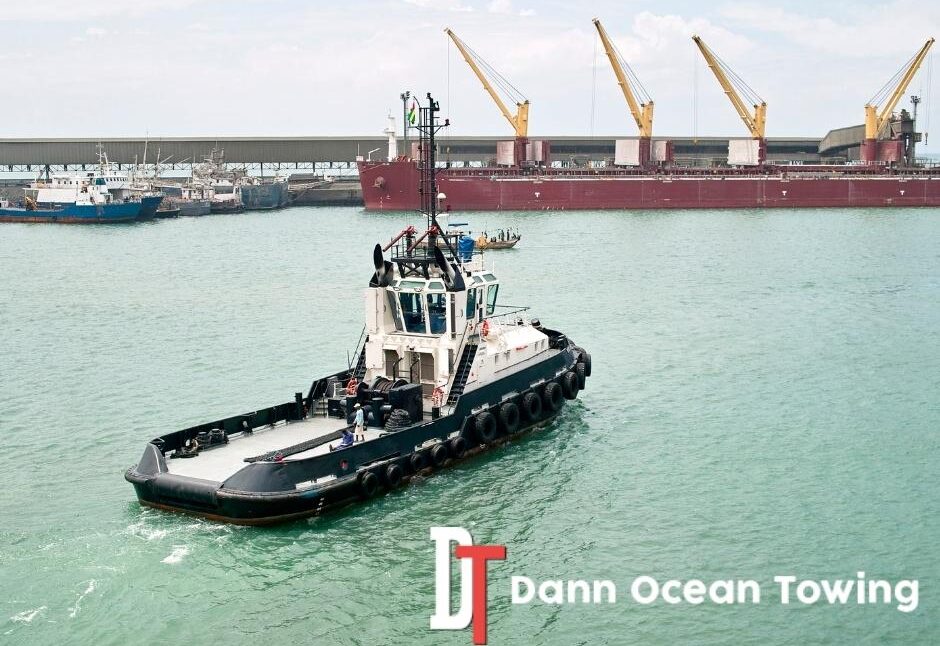Tugboats are very strong vessels. But why are they considered slow?
Tugboats are extremely powerful vessels that are designed to push or pull very large waterborne vessels and objects. The question we often get asked, however, is why are tugboats so slow even though they’re so strong? We thought it’d be interesting to discuss some things about tugboats regarding their speed and power, tugboat towing specifics, and why they move so slow despite their power.
Are Tugboats Designed for Speed?
The simple answer is, no. The primary function of a tugboat is to move large vessels, barges, and other such waterborne objects that can’t navigate on their own. A single tugboat can move a waterborne object many more times its weight, so they’re designed for strength and not speed. Think of them as always operating in low gear as a car or truck would do when it’s pulling something heavy through certain types of terrain.
How Strong Is the Average Tugboat?
The horsepower of an average tugboat is generally regarded as between 680 HP and 3400 HP, with the most powerful clocking in at up to 22,000 HP. Instead of using a tugboat at that very high range, however, a tugboat towing company will typically use multiple smaller ones because the largest one simply isn’t practical to keep as part of a fleet. In addition to horsepower, the strength of a tugboat is measured by bollard pull, which basically refers to the pulling power of a vessel.
How Fast Can Tugboats Move?
Although it varies, when tugboats get up to speed, they can typically travel as fast as 15 knots. For a quick comparison, consider the fact that cruise ships typically move at 21-24 knots while high-speed cruise ships can travel at a rather brisk 30 knots or more. The fact that such a large vessel filled with people and tons of weight could potentially move at twice the speed of such a smaller vessel may be surprising, but not when you consider why tugboats exist in the first place.
Why Are Tugboats Slow?
You could say tugboats are designed to be slow because there’s no reason to make them faster. After all, their primary functionality is to either push or pull big ships, mega container ships, barges, etc. Think of them as the ocean’s tractors. The average speed of a tractor is just 18 mph because, like tugboats, they’re designed to pull heavy items. In the case of tugboats, they need to navigate slowly through harbors and other areas in the majority of their tasks, where speed is actually discouraged.
Could Tugboats Be Faster?
Yes and no. With today’s technology, practically any type of seafaring vessel could be designed to go faster. The problem is that this would add to the cost of building the tugboat and except for maybe getting to a destination a little bit quicker when needing to tow something, there really wouldn’t be any advantage.
As we stated above, faster tugboats exist, but there’s a reason why we don’t have them in our fleet. Except in extremely specific circumstances, they wouldn’t serve much of a purpose. Plus, we have a reliable alternative.
Could Two Tugboats Have a Race?
Yes, two tugboats could have a race. Full disclose — Dann Ocean Towing has never told two of our captains to go out on the water and race around the harbor. That being said, there is a relatively well-known tugboat race that takes place in New York every fall season on the Sunday just before Labor Day.
It’s held on the Hudson River and lasts for just one nautical mile. So, to answer this question, tugboats can race each other, but they typically don’t. It would certainly be a sight to see, though… a very slow-moving sight, to be sure.
Contact Dann Ocean Towing for Tugboat Towing Services
Dann Ocean Towing has a fleet of 17 tugboats to meet every industry need. If you have any questions about our tugboat towing services or need to schedule one of our ships, you can call us 24/7 at (813) 251-5100 to schedule a free consultation.


